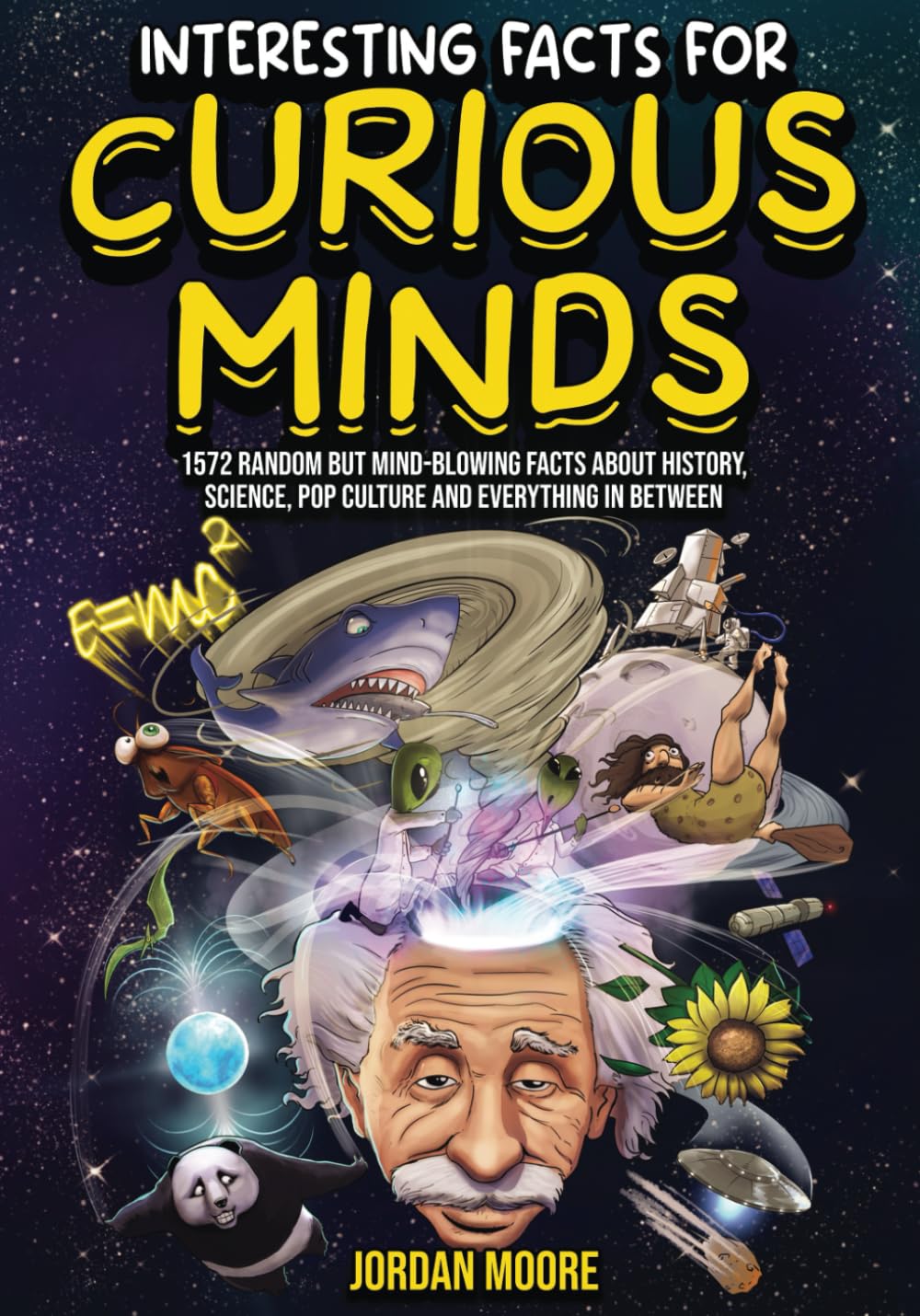
Interesting Facts For Curious Minds: 1572 Random But Mind-Blowing Facts About History, Science, Pop Culture And Everything In Between
Eccentric Dictators
byEccentric Dictators have long captivated the world with their strange and often outrageous behaviors. From quirky hobbies to bizarre personal traits, the lives of these leaders paint a vivid picture of the extremes of power. One such story involves Salvador Dali, the surrealist artist, who once gifted a scepter to the Romanian dictator Nicolae Ceaușescu, seemingly mocking him, yet Ceaușescu remained oblivious to the gesture’s deeper meaning. Similarly, Adolf Hitler’s later years were marked by unexpected dietary choices, including a strict vegetarian regimen of mashed potatoes and clear broth, leaving many to wonder about the reasons behind this shift. While some of these behaviors can be attributed to eccentricity, others, like Joseph Stalin’s extreme paranoia, reveal a darker side, such as when he reportedly analyzed his own feces and that of others to gauge loyalty and even scrutinized Mao Zedong’s stool to assess his mood. These strange actions illustrate the complex personalities of these leaders, showing that their eccentricities often went hand in hand with their tyrannical rule.
Another notable eccentric dictator was Mahmoud Ahmadinejad, who, despite his controversial presidency in Iran, harbored a deep passion for civil engineering, particularly traffic planning. His fascination with infrastructure was so intense that it became a defining part of his identity as a leader. Similarly, South Sudan’s president, Salva Kiir Mayardit, is known for his fondness for a Stetson hat gifted to him by George W. Bush, leading him to amass a large collection of similar hats over time. These personal obsessions, while seemingly harmless, offer insight into the unique character traits of each leader. In stark contrast, François “Papa Doc” Duvalier, the Haitian dictator, used Voodoo as a tool for intimidation, even allegedly cursing John F. Kennedy with a Voodoo doll, a dark expression of his need to control through fear. Meanwhile, Pol Pot’s brutal rule in Cambodia, which led to the deaths of up to 3 million people, underscores how personal eccentricities and ideologies can fuel horrific political regimes.
Dictators like Alexander Lukashenko, Kim Jong-Un, and Mobutu Sese Seko were known for their indulgence in personal fetishes that sometimes bordered on the absurd. Lukashenko’s love for hockey, which he used as a way to assert national pride, was a public spectacle, while Mobutu was infamous for his lavish spending on alcohol and personal luxuries. Kim Jong-Un’s regime in North Korea, known for its propaganda-driven portrayal of the leader as a god-like figure, also saw him indulging in extravagant consumption, with reports of his large appetite and obsession with rare foods. These leaders, often defined by their need for control, used their eccentricities to build a public image that reinforced their power and influenced how they were perceived both at home and abroad. Similarly, Fidel Castro’s pragmatic approach to revolution and his philosophical musings on Marxism contrasted with his indulgences, which included enjoying elaborate meals and engaging in lengthy discussions about strategy. On the other hand, Saddam Hussein’s obsession with republishing pamphlets filled with hate and propaganda highlights the ideological extremism that underpinned much of his rule, showing that some dictators, despite their indulgence in personal pleasures, were deeply committed to their political ideologies.
The chapter also touches on how dictators, such as Joseph Stalin, transformed themselves to fit more closely with the national identity they sought to project. Stalin, for instance, adopted a more distinctly Russian persona, shedding his Georgian roots to appeal to the Russian people. Similarly, Bashar al-Assad’s shift from ophthalmology to the presidency was a dramatic transformation that further exemplified how personal backgrounds can drastically change when the desire for power takes precedence. The chapter also examines Mao Zedong’s deep mistrust of education, a decision that led to his disastrous Cultural Revolution, while Idi Amin’s self-proclaimed royal lineage, claiming to be a descendant of Scottish nobility, adds another layer of eccentricity to his erratic rule in Uganda. These transformations and the bizarre claims of lineage or self-importance illustrate how the thirst for power and the need to solidify one’s authority can sometimes be fueled by the most absurd ideas.
The eccentricities of dictators often intersect with their accumulation of wealth and self-aggrandizement. Leaders like Manuel Noriega and Muammar Gaddafi were notorious not just for their oppressive regimes but also for their pursuit of wealth, often at the expense of their people. Gaddafi, for instance, was known for his lavish spending and the accumulation of vast amounts of personal wealth, much of which was obtained through oil revenues and the exploitation of his country’s resources. The intersection of personal eccentricities with political power in these dictators’ lives is a stark reminder of the dangers of absolute power, where the line between personal indulgence and national exploitation can often become blurred. These stories of eccentricity, wealth, and political tyranny underscore the complex relationship between personal identity and political authority, offering insight into the mindset of some of history’s most infamous leaders.

